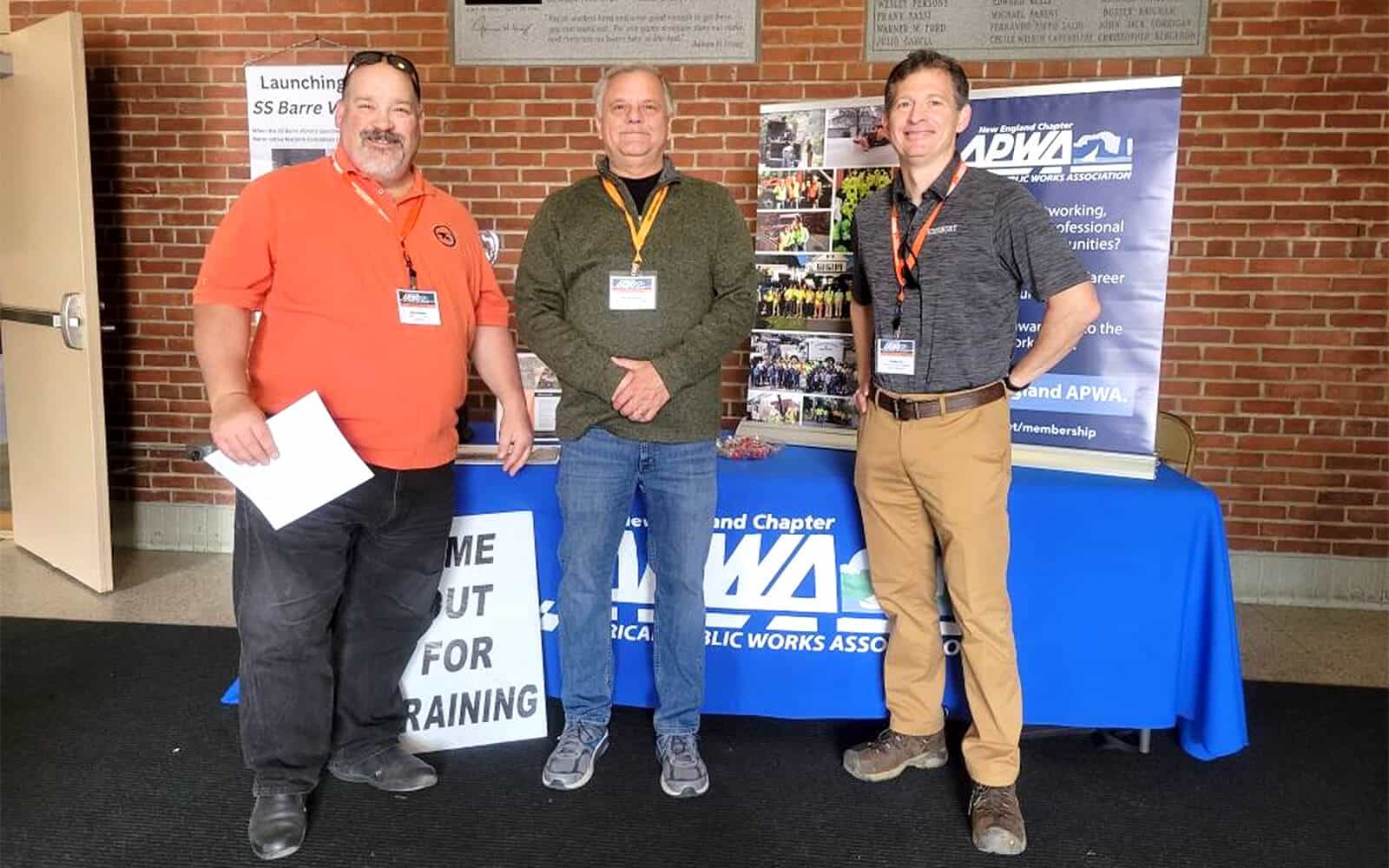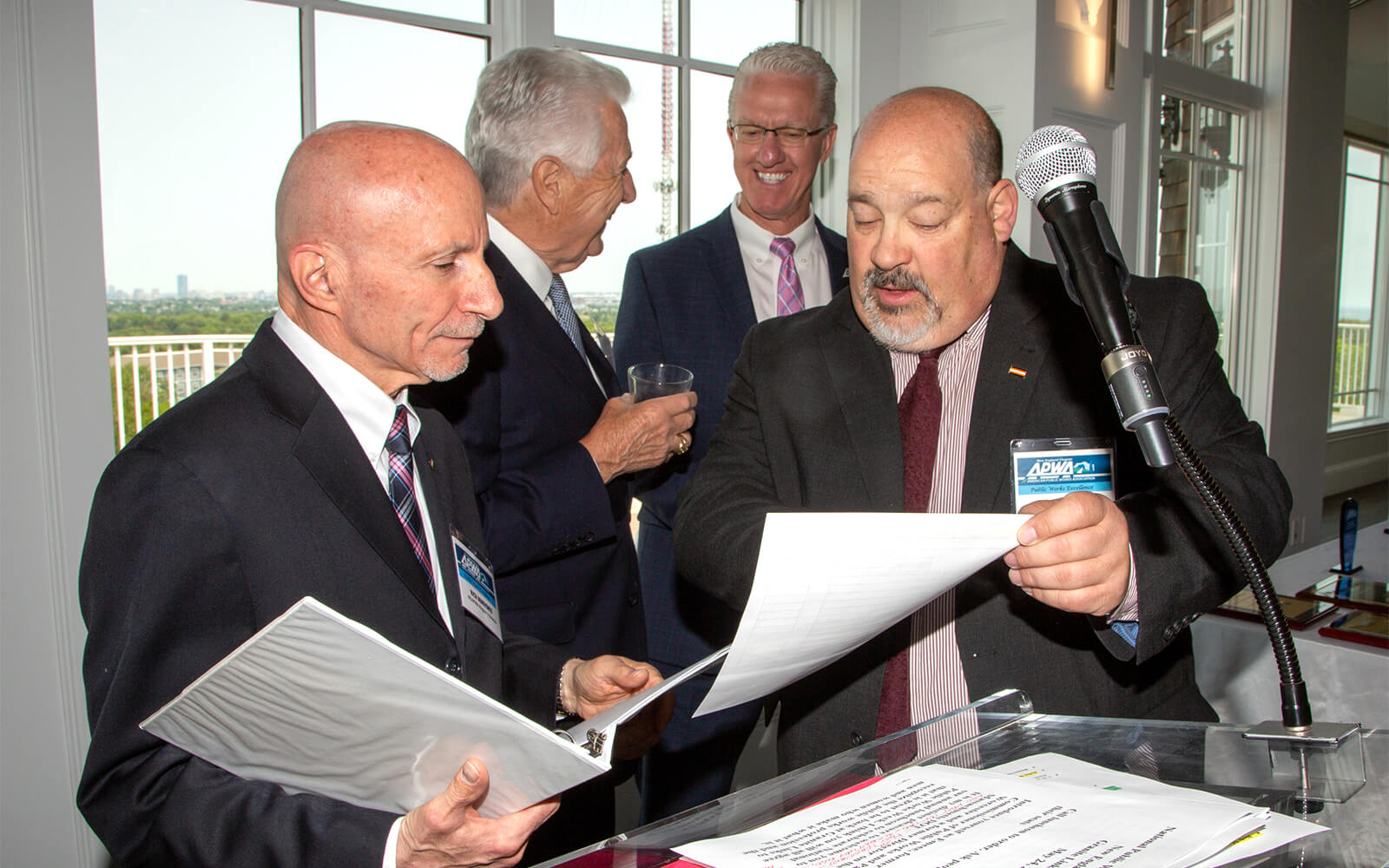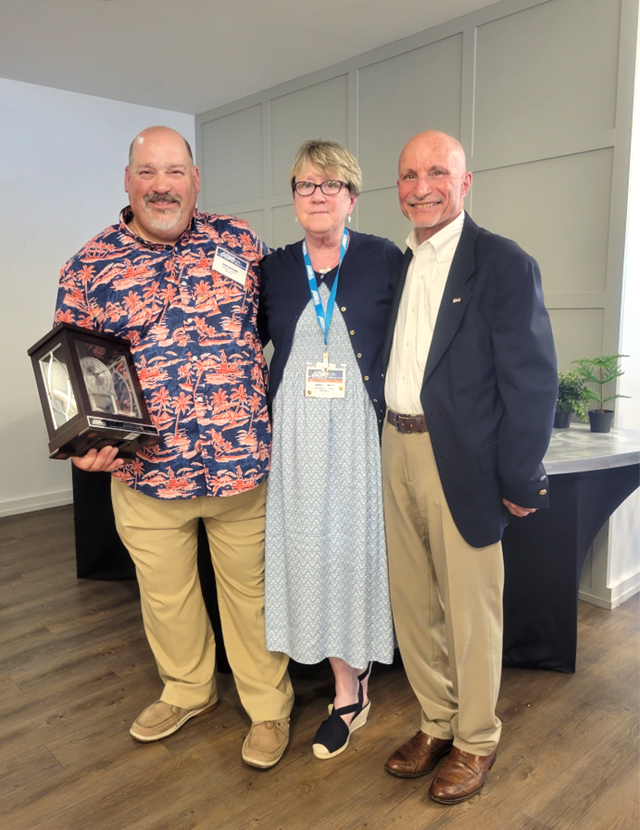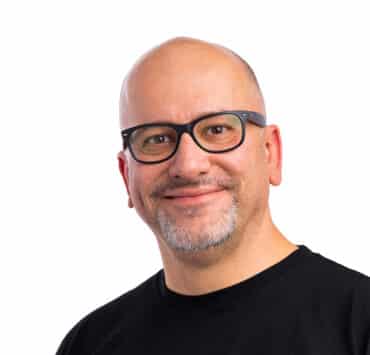|
Getting your Trinity Audio player ready...
|
“There are 351 cities and towns in Massachusetts. I’ve worked in 260 of them [and even] more since rejoining the Commonwealth,” says John J. Bechard, deputy chief engineer of project development for the Massachusetts Department of Transportation (MassDOT).
In addition to his role at MassDOT, Bechard is the current president of the New England Chapter for American Public Works Association, a regional group of 1,000 members and significant partner of the national 31,000-member organization. That position affords him the opportunity to work with all the New England states on issues that affect all facets of public works.
Bechard has been designing in the Bay State since President Ronald Regan’s second term. He’s spent time both on the public and private side of the building equation, building consensus and relationships just like the bridges and transportation infrastructure that keeps traffic flowing.

Photo by Molly Otero
The deputy chief has achieved a full circle in his career. Initially a MassDOT project manager, Bechard went on to spend nearly 26 years at VHB, a civil engineering and consulting firm headquartered in Watertown, Massachusetts. In 2018, he decided to round out his career where he started, but this time at an executive level.
The role has offered Bechard, along with a wide oversight, the chance to mentor up-and-comers, just like the MassDOT veterans who took Bechard under their wings when he was a fresh-faced new hire trying to learn the ins and outs of how things get done in Massachusetts.
“I’m at a point in my career where whatever issue someone on my team might be having, I’ve probably gone through it,” he explains. “Not everything’s the same, but it gives me the opportunity to work one-on-one with great people who just might be stuck on a problem. Mentoring has become a big part of this job and it’s something I take pride in.”

Photo by Jonathan Sachs
How to Build Consensus in a Public Meeting
John J. Bechard has spent so many hours presenting complex and sometimes contentious design, construction, and development plans in communities across Massachusetts that he understands how important building consensus can be. If you’re looking for tips on reaching an agreement, take it from a pro.
- Prepare yourself. “Know your audience. Know what you’re conveying before you get up there.”
- Prepare the room. “Let everyone know what you’re going to be telling them. Set the agenda.”
- Keep it clean. “Hit them with the information. Don’t get bogged down by questions at this point. Say what you came to say.”
- Make it stick. “Remind them what you’ve told them. Then remind them again. You are reinforcing the information over and over again.”
- Rapport and repeat. “There will be criticism. There will be questions. You should be prepared for that. But the more you see people and update them on what is happening, the more consensus you’re building over time. People who came late to the process can be educated by those people who have been there since the first meeting. You build a rapport. You build buy-in. You treat people right and you get things done.”
Bechard has a long history of building bridges, literal as well as metaphorical. It’s the soft skills that he’s most intent on passing on to his people.
“This isn’t a job where you can go in, tell people this is what you’re doing, and just push it through,” he says. “We’re here to serve the public. You can’t always bring a hammer. Sometimes you need a scalpel to shave some edges down to get a piece to fit. The more people you can bring along with you in the process, the better off you’re going to be.”
Bechard is currently tackling MassDOT’s most expensive project to date: a nearly $4 billion Cape Cod bridges replacement project. Because the bridges don’t expressly belong to the state, MassDOT is tasked with triangulating with federal agencies to secure funding and grants to make the huge project happen.

Photo by Molly Otero
“We’re still working on funding, we’re developing the project, and working through permitting strategies at present,” Bechard explains. “This is a big one. No one is disputing that this needs to get done, but it’s our job to create the right financing plan to meet all of our commitments in a certain window of time. This will be one of the biggest things we’ve ever done.”
And it’s not without its challenges. The Bourne and Sagamore Bridges carry Massachusetts’ south–north highways across the Cape Cod Canal, thereby connecting the famed peninsula to the rest of the state. Now, take the stakeholders: it’s anyone who drives, bikes, or walks across it, anyone venturing “down the Cape” or heading back “in town.” Private planes and boats aside, commuters can’t skip the bridges when traveling from one to the other, so construction and traffic impact are on everyone’s mind. But that’s where Bechard’s decades of expertise have the opportunity to shine.
“Whatever the project, there is going to be compromise and there is going to be contention,” he says. “Sometimes it’s about breaking up a project into smaller parts. Sometimes it’s about bringing stakeholders together that might otherwise have been in competition. No project is the same, but I have had the opportunity to build across so much of Massachusetts that I feel connected to everything we do.”
For 20 years, TEC has provided civil engineering design services in New England to a wide variety of clients including municipalities, state agencies, educational institutions, real estate developers, architects, and nonprofit organizations. Over that time we have developed a highly capable and enthusiastic team that has served our clients with creativity, responsiveness, respect, and grit. Our organization has grown and thrived on the long-standing relationships and trust we have built with clients, and together with our clients we have succeeded in improving the communities where we live, work, and play. John Bechard’s open communication and collaborative approach to projects enables TEC to deliver timely, efficient transportation infrastructure projects to MassDOT and the Commonwealth of Massachusetts.


